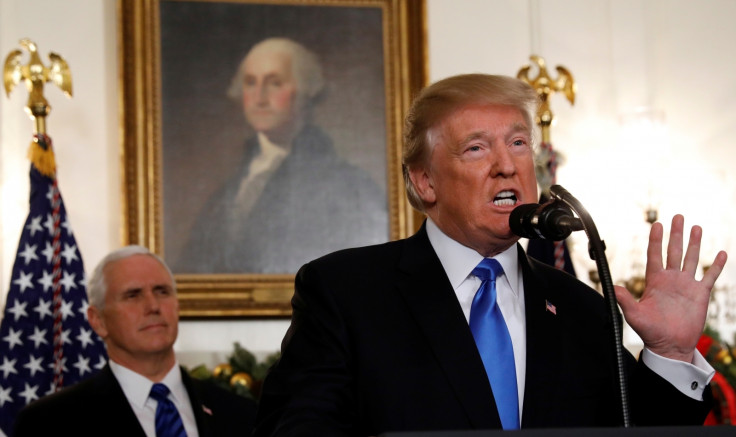What are the early signs of dementia? WH dismisses 'ridiculous' claim about Trump's mental health
TV host Joe Scarborough kickstarted the discussion about the president's mental health.
US President Donald Trump raised concerns about his health after he slurred during his 6 December (Wednesday) speech recognising Jerusalem as the capital of Israel. "God blesh the United Shhtates," he said in his closing remarks, and people immediately attributed the lisp to a number of issues — from faulty dentures to the more serious dementia.
"There were a lot of questions on that. Frankly pretty ridiculous questions," White House press secretary Sarah Huckabee Sanders told reporters on Thursday. "The president's throat was dry. Nothing more than that."
Morning Joe co-host Joe Scarborough, made a "careful" suggestion that Trump may be suffering from the mental illness, and said that he had seen similar symptoms in his mother who suffers from the same condition.
"Unfortunately in the case of my mother, I can move that to the side and I am totally fine with that," he said. "In this case, Donald Trump has control of nuclear weapons."
This is not the first time the talk show host has hinted that the president was unstable. In late November, Scarborough described Trump as being "completely detached from reality".
"You have somebody inside the White House that the New York Daily News says is mentally unfit. That people close to him say is mentally unfit, that people close to him during the campaign told me had early stages of dementia," he continued.
Various other news reports suggested that the speech issue was more to do with a loose denture plate. "Saliva can get trapped between an upper plate and the palate – or between the lower plate and the lower jaw – and that's what makes the noise," a dentist told the Daily Mail.
Sanders dismissed the health concerns but assured reporters that the president would receive a full medical exam during "the first part of next year".
"That will take place at Walter Reed [National Military Medical Center], and those records will be released by the doctor following that taking place," she said.

Early symptoms of dementia
The NHS states that dementia is not a disease itself but rather a collection of symptoms that result from damage to the brain caused by different diseases, such as Alzheimer's. Symptoms vary from person to person, depending on which part of the brain is damaged but there tend to be some common early signs like:
Memory loss: The changes are often subtle and tend to involve short-term memory.
Difficulty concentrating: A person with this symptom would find it difficult to understand the storyline of a movie or book and ask others to repeat themselves.
Apathy: A person with symptoms of dementia could lose interest in hobbies or activities. They may prefer to stay at home alone rather than go out and spend time with friends and family.
Difficulty in carrying out familiar daily tasks: The person will start finding it more and more difficult to do tasks like balancing a checkbook or playing games that have a lot of rules.
Struggling to have a conversation: A person with dementia may have difficulty explaining something or finding the right words to express themselves.
Being confused about time and place: Confusion is often triggered by memory loss and a person showing signs of dementia could get flustered because they cannot find their keys, or recognise a person they have met before.
Mood changes: Depression is typical of early dementia along with a shift in personality.






















